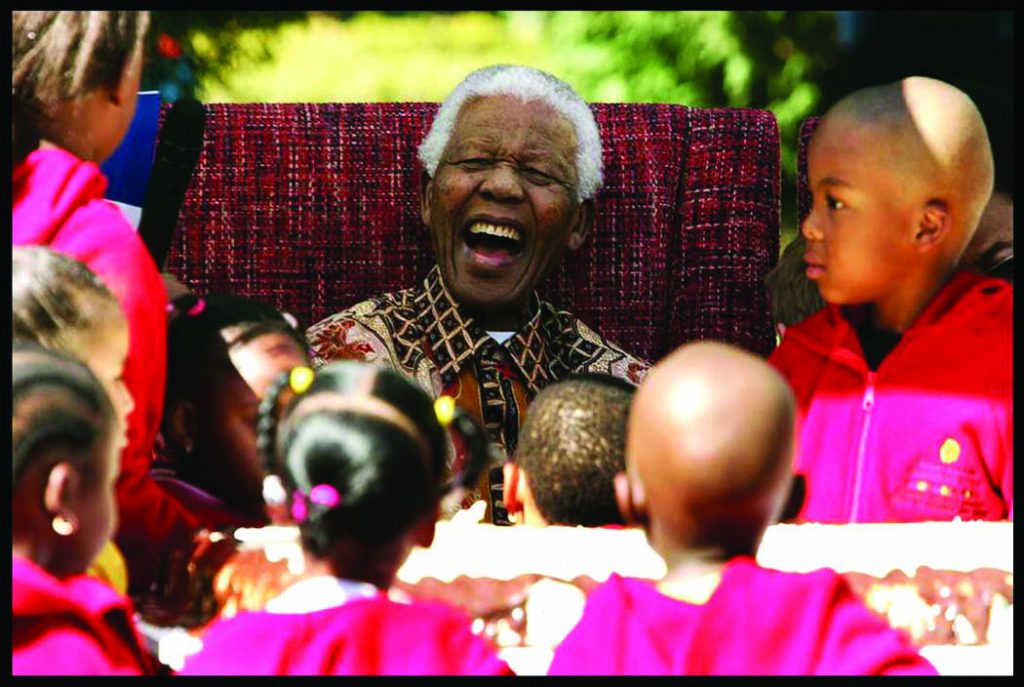CSI
CSI And Brands: A Natural Synergy
Companies and organisations communicate the products they produce or the services they offer through branding. This affords consumers the chance to gauge if they can trust the reputation of the company’s products or services. In essence, a brand communicates what a company or organisation stands for and has the ability to affect the hearts and minds of audiences, totally shaping perceptions. The very mention of a brand name (or the sight of the brand logo) evokes a customer’s experiences and perceptions of a business – both good and bad.
Sometimes brands go beyond selling a product or service. They can be used to sell a message of social good and can play a significant role in the field of corporate social investment (CSI). In a country such as South Africa, with a plethora of socio-economic challenges, corporates have long shown a willingness to be part of finding solutions rather than standing on the sidelines hoping that government alone will shoulder responsibility for any change.
Many companies realise that there’s immeasurable value to the business if its brand is linked with social causes. The potential benefits of CSI include: enhanced corporate image; improved employee morale; stabilisation of the social and economic environment; and being seen as a good corporate citizen.
Nelson Mandela Foundation and the Nelson Mandela Children’s Fund
Businesses and organisations are capable of using brands to inspire positive action in society. In the case of organisations, fewer brands are effective in encouraging social good than the Nelson Mandela Foundation and the Nelson Mandela Children’s Fund. Both were founded to honour the ideals of one of South Africa’s greatest sons. The Nelson Mandela Foundation’s core work focuses on research and archiving records to record the story of his life, his work, his writings and his dreams, and keep his legacy alive and to provide the public with information. The Foundation also conducts research and analysis into finding solutions for social issues and supporting all Nelson Mandela Foundation initiatives.
The Nelson Mandela Children’s Fund aims to shape the lives of children and the youth by changing society’s perceptions of how children should be treated, and to ensure their rights and safety is protected.
The Fund was established because of the former president’s love for children, his desire for them to lead better lives, to be nurtured, to have a voice, and to respect and facilitate their dreams and aspirations. Mandela personally donated a substantial amount of his salary while he was president to get the fund off the ground. It was officially opened in 1995.
Using the Mandela brand, the Fund has had remarkable achievements over the years.
From 1996 to 1998, the Fund successfully generated more than R36-million to fund more than 780 projects at an average of R40 000 per project. Originally the Fund operated as a grant-giving organisation to ease the plight of South Africa’s children and youth. Several ad hoc funding strategies were employed during 1995 to 1999 to provide children and their families with the funds to meet their immediate needs. In addition, the Fund also made one-time funding for overheads and salaries available to organisations that focused on addressing children’s issues.
But, in 1999, the Fund realised that this type of handout approach did not foster community involvement, or address growing organisational capacity issues and would not be sustainable. After a critical review of the national and regional policies in place to support children and the youth, the Fund re-evaluated its existing projects and defined new areas to pursue.
This review culminated in the 2000 launch of the Sakha Ikusasa strategy, a new programme and organisational approach for the period 2000 – 2005 (Sakha Ikusasa I). Through partnerships with the Department of Social Development and some civil society organisations, the Fund introduced a ground-breaking programme, Goelama, to fight the HIV and AIDS crisis by involving family and community in the fight.
Between 2005 and 2010 (Sakha Ikusasa II), the Fund further narrowed and sharpened its focus on developing a programme to advocate on four key areas: child wellbeing; leadership and excellence; skills; and disability. It added another key area – one dedicated to caring for orphaned and vulnerable children. The Fund also extended its reach to the Southern African Development Community region, sharing its childcare models with other peer organisations.
From 2010 to 2015 (Sakha Ikusasa III), the Fund turned its attention to developing a children’s rights movement to champion their wellbeing. The Fund actively sought out the cooperation and input of all sectors of society to support and further this initiative. One of the flagship projects of the Fund is the Nelson Mandela Children’s Hospital, which is being built in Parktown, Johannesburg.
Motsepe Foundation
The Motsepe Foundation seeks to give back to the community and helps give hope and build a better and brighter future for all. The five key pillars that the Motsepe Foundation devotes a large part of its time to are: women empowerment; education and leadership; sport; economic empowerment; and youth economic empowerment.
Overall, the foundation seeks to uplift, empower, motivate and inspire the people of South Africa. Top businessman Patrice Motsepe and his wife Dr Precious Moloi head the foundation. As with the Mandela brand, their stature alone lends credibility to the ideals of development for which the foundation stands.
The Raymond and Wendy Ackerman Foundation
The Raymond and Wendy Ackerman Foundation was founded in 1997 on the 30th anniversary of Pick n Pay’s establishment. Raymond Ackerman is a renowned businessman and retailer who grew Pick n Pay stores from a few stores into a formidable supermarket chain.
The Raymond Ackerman name alone imbues the Foundation’s activities with trust; working with the Foundation is teaming up with a winner. The Foundation works hard to enable South Africans to provide for their own needs while aspiring to better themselves and to contribute to their communities. It does so by contributing to sustainable development through the enhancement and development of skills by supporting projects that encourage entrepreneurship and self-reliance, and provide employment opportunities.
The foundation believes that sustainable enterprise development can relieve conditions of poverty and unemployment through economic empowerment and uplift the quality of life of marginalised and disadvantaged emerging entrepreneurs.
Corporates and social good
On the company front, Barclays Africa is an example of a corporate that uses its continental footprint and financial services sector clout to agitate for better societies in the areas where it operates. Its community-engagement initiatives across the continent are informed by a shared growth approach that sees the banking group unleashing its substantial resources to unlock societal solutions through innovative products, services and partnerships.
Key areas of intervention for shared growth are education and skills, enterprise development, and financial inclusion. Sazini Mojapelo, Barclays Africa head of citizenship, says shared growth is a priority area for the bank’s operations across the continent. The group is keen to succeed on a continent that is also thriving. “Shared growth is about securing our future as a business,” Mojapelo says.
Other companies quite active on the CSI arena include KFC, Tiger Brands, Aurecon and Mondi. While areas of intervention may differ, the goal is the same: using their brands to embark on projects for social good.
Conclusion
Brands play a vital role in CSI initiatives. They can inspire social good and represent good values. In the case of companies, brands can do so while still offering shareholder value.
In the case of foundations or nonprofit entities, the social or business standing of the founders offers immeasurable credibility to the brand and greatly helps toward achieving the organisation’s social impact objectives.






 Sign-up and receive the Business Media MAGS newsletter OR SA Mining newsletter straight to your inbox.
Sign-up and receive the Business Media MAGS newsletter OR SA Mining newsletter straight to your inbox.